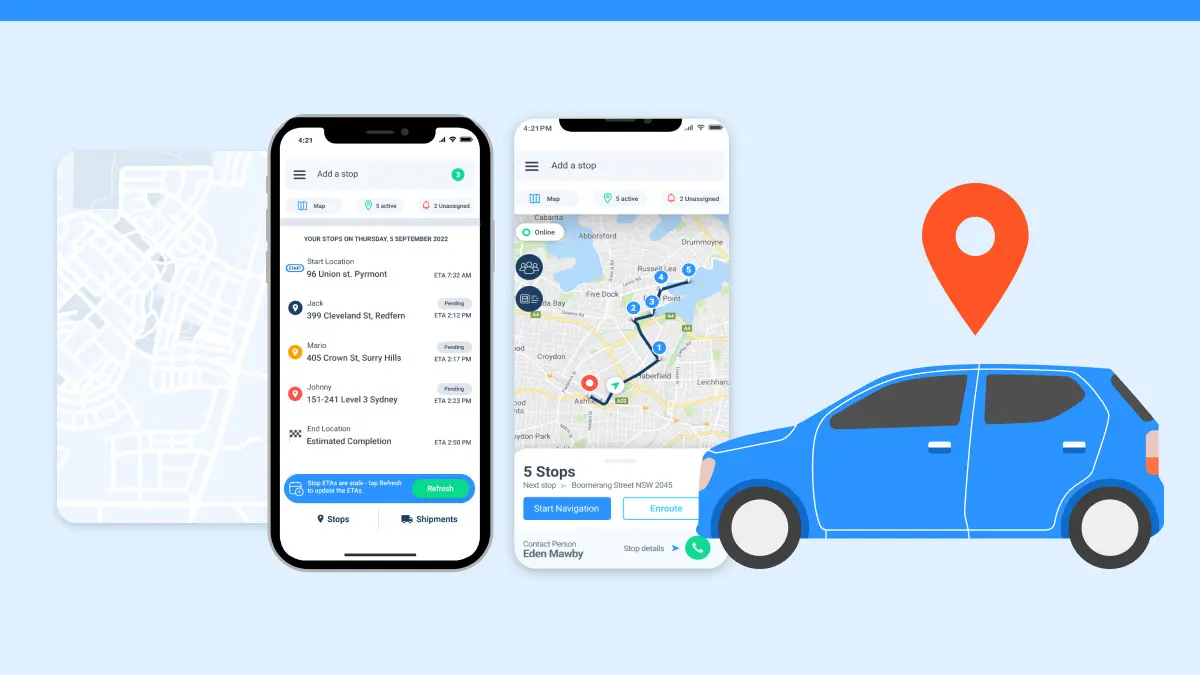Navigating the Future of GPS Tracking: Innovations, Challenges, and Opportunities Ahead
As we stand at the crossroads of technical innovations and social ramifications, the landscape of GPS tracking is poised for a transformative journey in advance. The evolution of GPS modern technology has actually been quick, introducing a brand-new period of real-time monitoring capabilities that assure unmatched levels of accuracy and efficiency. However, with great development comes wonderful responsibility, as data personal privacy concerns loom huge and safety and security difficulties in GPS tracking raise relevant questions concerning securing delicate info. Yet, amidst these challenges lie surprise opportunities waiting to be discovered, offering a glimpse into the untapped capacity of an industry at the edge of modification.
Development of GPS Innovation
Developed for armed forces functions, General practitioner technology has evolved to come to be an ubiquitous device in different fields, including transport, logistics, agriculture, and personal navigation. Early GPS systems were characterized by limited coverage, lower accuracy, and bulkier equipment demands.
One trick landmark in the advancement of GPS innovation was the advancement of Careful Accessibility (SA) in the 1990s, which purposefully degraded the accuracy of private GPS signals. The discontinuation of SA in 2000 considerably boosted GPS precision for private individuals. Subsequent innovations, such as the deployment of additional satellite constellations like Galileo and BeiDou, have additionally enhanced GPS coverage and accuracy, making it an essential tool in daily life. As general practitioner innovation proceeds to develop, we can anticipate more improvements in insurance coverage, accuracy, and performance, opening up brand-new possibilities for development and applications throughout various markets.
Real-Time Tracking Developments
Building on the innovations in GPS technology that have changed accuracy and coverage, real-time tracking has actually arised as a critical area of innovation with profound implications across different fields. Real-time tracking innovations enable companies and companies to keep an eye on assets, cars, and employees instantly, providing important understandings for decision-making processes - gps tracking. By leveraging real-time information, business can improve functional efficiency, improve customer care, and make sure the safety and security and protection of their assets
Among the key developments in real-time monitoring is the integration of expert system and artificial intelligence formulas, which allow predictive analytics and anomaly discovery. These capacities permit proactive maintenance scheduling, route optimization, and threat mitigation approaches. The evolution of real-time tracking systems has actually led to the advancement of customizable control panels and mobile applications, equipping individuals to access crucial info anytime, anywhere.
Information Personal Privacy Concerns

Information privacy problems encompass numerous elements, including the storage space, sharing, and retention of area information. Organizations must implement durable protection procedures to secure GPS monitoring data from cyber risks and data breaches. Transparent plans pertaining to information collection techniques and the function of tracking are necessary to develop depend on with consumers and make sure conformity with data protection regulations.
Security Obstacles in GPS Monitoring
Dealing with information personal privacy problems in GPS monitoring is elaborately linked to alleviating the security tests that occur from prospective vulnerabilities in the modern technology. One of the main safety and security difficulties in GPS monitoring is the danger of unapproved accessibility to sensitive area data.

One more security challenge is the possibility for obstructing or spoofing GPS signals. By conflicting or broadcasting incorrect signals with legit ones, malicious Visit Website stars can deceive GPS receivers and control place data. This positions dangers not only for private users but likewise for armed forces and governmental applications that count on precise placing details. Executing robust encryption, verification actions, and signal verification procedures are vital steps in resolving these security obstacles in GPS tracking.
Emerging Opportunities in the Industry
The blossoming area of GPS tracking technology provides a myriad of appealing opportunities for industry development and advancement. One key chance exists in the growth of General practitioner tracking applications beyond typical industries. GPS monitoring can transform person care by allowing remote tracking of essential indications and guaranteeing prompt medical help.
In addition, the raising demand for linked devices and IoT services provides a ripe opportunity for GPS monitoring firms to broaden their offerings and create cutting-edge remedies that cater to a more connected globe. By utilizing on these arising possibilities, General practitioner monitoring companies can place themselves for continual growth and success in the vibrant landscape of the industry.
Conclusion
Finally, the future of GPS monitoring is noted by constant advancement and development in modern technology. Real-time monitoring advancements and emerging opportunities present promising leads for the sector. Nonetheless, information privacy issues and read this post here safety and security challenges stay considerable difficulties that require to be attended to. As the sector moves onward, browsing these challenges will be essential to make sure the continued development and success of general practitioner tracking technology.
With great development comes fantastic responsibility, as information privacy issues loom huge and protection challenges in General practitioner tracking raise essential inquiries regarding securing sensitive info.With the image source fast expansion of GPS monitoring technology in numerous sectors, addressing information privacy concerns has become an important vital for both consumers and businesses alike. The collection of place information through GPS tracking elevates significant personal privacy concerns, as it allows the monitoring of individuals' movements and habits. Companies using General practitioner monitoring should focus on protecting this information to avoid unapproved gain access to or abuse that might compromise people' personal privacy civil liberties.
Businesses should execute robust security steps to protect General practitioner monitoring information from cyber dangers and data breaches.